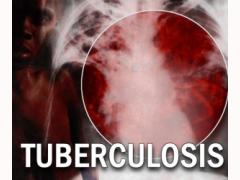
Tuberculosis remains a major cause of death worldwide. The rise and spread of drug resistance and synergistic interaction with the HIV epidemic are posing difficult challenges and threatening global efforts at tuberculosis control.
New molecular diagnostics have made earlier and improved diagnosis of active disease possible. Laboratory expertise and resources are required for these tests to become available throughout the developing world. Newer antituberculosis drugs offer the promise of shortened treatment regimens for drug-sensitive disease and more effective treatment for drug-resistant disease and latent infection. New vaccines against tuberculosis in advanced clinical trials offer hope for future tuberculosis control. Although these scientific developments are promising, the global economic crises continue to hinder tuberculosis-control programs. Strong political and financial commitments will be required to achieve global control of tuberculosis and avert millions of unnecessary deaths.
Source: NEJM